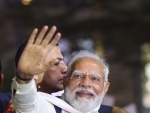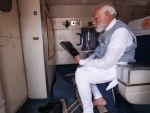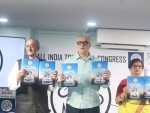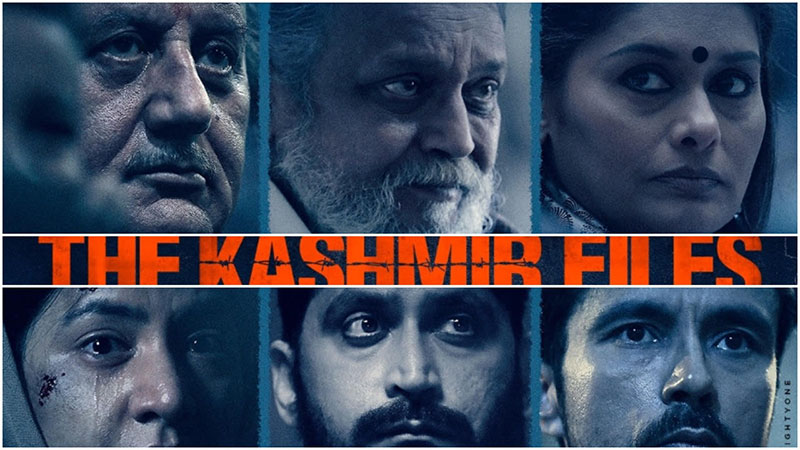 The Kashmir Files
The Kashmir Files The Kashmir Files: Anger, tears and sense of betrayal revisit Pandit community at screening of Vivek Agnihotri film
Kolkata/IBNS: Tears rolled down her eyes as Preeti Thusu, a Kashmiri Pandit, recalled her family's ordeal living in a tent some three decades ago after the exodus of the community to escape the Islamists' laboratory of terror that was Kashmir in 1989-90.
At her early 30s, she is one of the younger generations of Kashmiri Pandits who watched at a Kolkata screening with many others the "inconvenient truth" portrayed by filmmaker Vivek Agnihotri in The Kashmir Files.
Teary eyed, she recalled her family's experience of living in a civil tent in Jammu because of the Hindu Pandit community exodus that occurred as a result of a separatist Islamist insurgency that began on July 13, 1989. The exodus was preceded by a reign of terror when Pandits were hounded and killed, women were raped and killed and houses were set on fire to force them to leave the Valley.
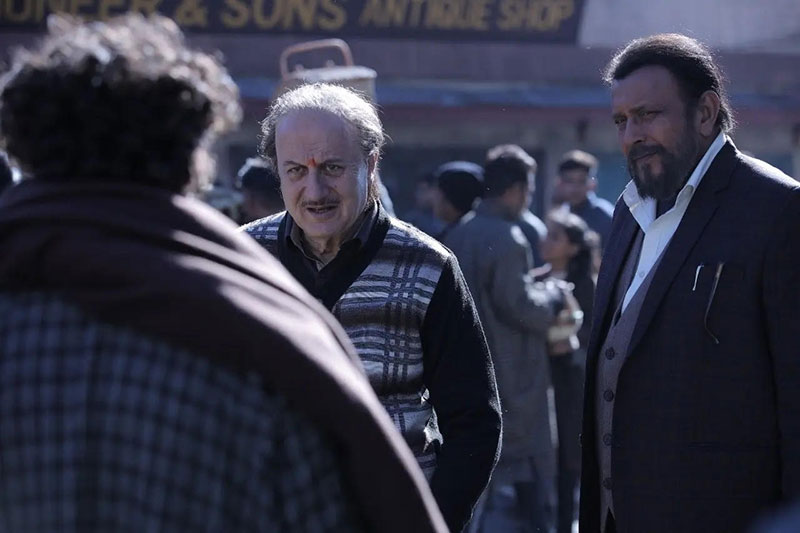
"I was a seven-month-old girl when my grandmother and my mother were forced to leave Kashmir overnight, as the face of our erstwhile state turned red. Muslim ladies used to work as informers.
"They used to keep asking my grandmother about our whereabouts, to which she answered that her granddaughter was sick and so they were headed to her nani's place," she said, narrating the betrayal of the community by their suddenly hostile neighbours."After reaching Jammu, we were placed in a civil tent where we stayed for five and a half years without any access to doctors or basic hygiene needs like toilets," she said."We used to take God's name and keep moving forward to escape the genocide," she added.

She was narrating her family's horror to IBNS on the sidelines of a private screening of director Vivek Agnihotri's The Kashmiri Files, attended by 300 Kashmiri Pandits in Kolkata.
Vivek Agnihotri’s The Kashmir Files, a film based on video interviews of the first generation victims of the Kashmiri Pandit community's genocide in 1990, opened in theatres on Friday with a promising box office figure amid a rave review by the audience among whom it touched an emotional chord.
Sunil Kaul, President of Kashmiri Sabha, Kolkata, said,"Just like Preeti and what the film depicted, there are 2,00,000 untold stories that are still under the carpet."
Sharing his view on the film, he said, "Kashmiri Files is what Schindlers List is for Jews. There were hundreds of thousands of us who went through the same trauma, which is impossible to cover in a few hours. However, it was a great effort to spread awareness after 32 years of silence."
On what it means to be a Kashmiri Pandit, Kaul said,"Living through terror, the sleepless nights, the hell that we had to go through in what we call our heaven and still wanting to go back."

On the scars left on every Kashmiri Pandit's identity, Kaul added, "My son till date is afraid of being identified as a Kashmiri Pandit, which proves that even the present generation is affected by what happened so many years back."
"I had to travel to Kashmir to be with my son for a few days just so that he does not feel this way," he said.
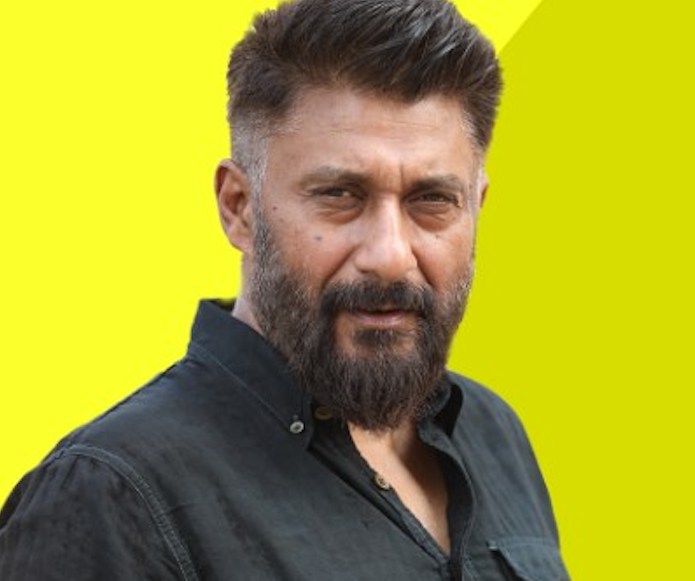
After watching the film, Krishna Sharma Kachru, an elderly Kashmiri lady, tried to find the energy to walk down the steps towards the exit gate. It was like revisiting her world which was toppled three decades ago and turned into a nightmare.
"I could feel the pain of my brother Ashok Kachru's family that had to leave their four-storey house in Rainawari, Srinagar for a life of immense struggle in Jammu in the early stages."
"My brother who used to work for the Indian security agency before the Kashmir attacks was actively contributing to the society, but post that he had his name come up in the terrorist's hit list and is still living with the tag of refugee in India," she said.
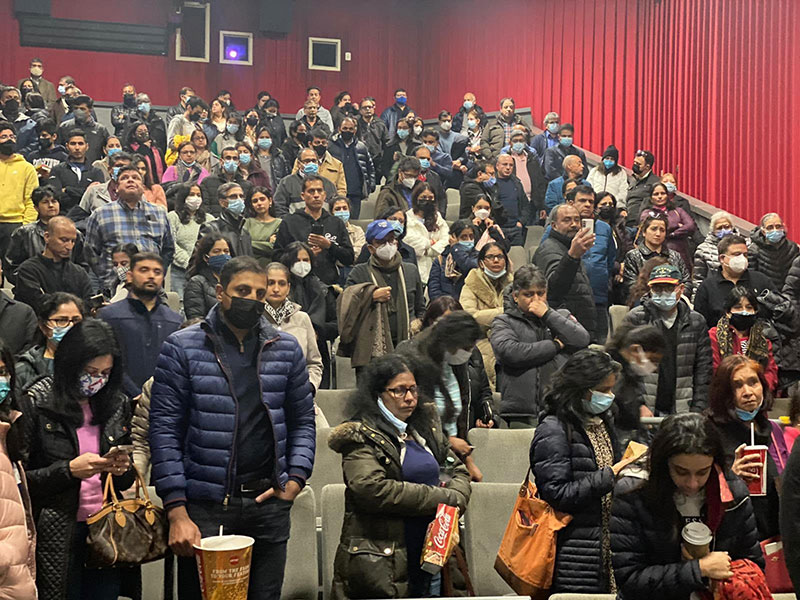 Audience in a standing ovation at a screening of the film in USA. Image: FB
Audience in a standing ovation at a screening of the film in USA. Image: FBThe Kashmir exodus was an act of ethnic cleansing launched by terrorists harboured and supported by Pakistan.
The lull before the insurgency was broken by mass threats to leave Kashmir or die, breaking in houses and stone pelting, she said.US based journalist Sunanda Vashisht at US Congressional hearing on human rights narrated how an engineer named BK Ganjoo who had hid in a rice container in his attic when the terrorists came for him was killed after neighbours disclosed his hiding place.Describing Kashmir in 1989, journalist Arti Tikoo earlier said, "We heard the boys high on testosterone chanting 'azadi' (freedom from India), 'Pakistan se rishta kya... la ilaha illa allah' (relationship with Pakistan is that of with Allah) and 'nizam-e-mustafa' (Sharia rule) in the same breath. 79 innocent, unarmed civilians were killed that year by these 'freedom fighters'."
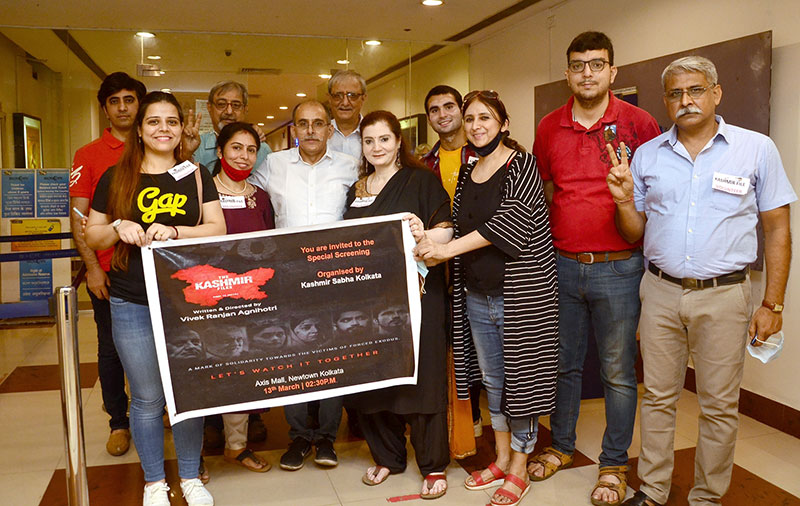 Pandit community at a Kolkata screening of The Kashmir Files / Avishek Mitra/IBNS
Pandit community at a Kolkata screening of The Kashmir Files / Avishek Mitra/IBNS
"He would have been alive today had his location not been disclosed to the terrorists by his own neighbours....The terrorists shot him through the container and forced his wife to eat the blood-soaked rice," Vashisht said.
She also considered the exodus of Kashmiri Pandits, as the 'first labratory of Islamist terror'.
Support Our Journalism
We cannot do without you.. your contribution supports unbiased journalism
IBNS is not driven by any ism- not wokeism, not racism, not skewed secularism, not hyper right-wing or left liberal ideals, nor by any hardline religious beliefs or hyper nationalism. We want to serve you good old objective news, as they are. We do not judge or preach. We let people decide for themselves. We only try to present factual and well-sourced news.





